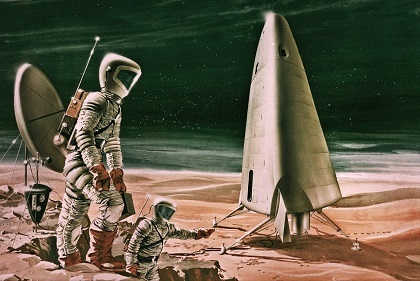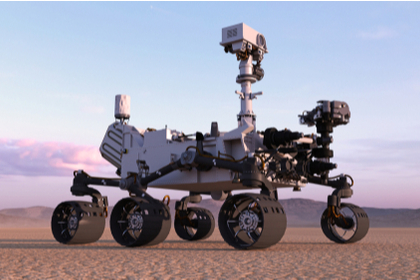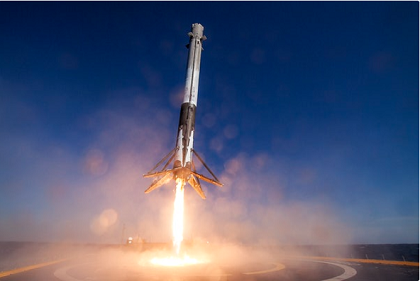 Courtesy: Gateway House
Courtesy: Gateway House
India has institutionalized a robust civilian-space agreement with the U.S. through the Joint Working Group on Civil Space Cooperation in 2005 and added a military dimension to it in 2020 when it signed the U.S.-India BECA Agreement. The two countries should now partner to secure each other’s interest in the rapidly-maturing space economy sector.
 Courtesy: Wikimedia Commons
Courtesy: Wikimedia Commons
The Space20 is the newest sub-forum of the G20 initiated by Saudi Arabia, with the support of the United Nations Office of Outer Space Affairs. India, on its way to the G20 presidency in 2022, should set a comprehensive Space20 agenda for the democratization of outer space, whereby it can share its space growth story with the developing world and achieve its goal to become a global knowledge epicenter.
 Courtesy: Wikimedia Commons
Courtesy: Wikimedia Commons
As the world enters the Second Space Age, an Indo-Emirati space partnership can be a lodestar for others. However, it is only the people-to-people connect and the diversity of the innovation linkages between the Emirati and Indian diaspora, that can truly make it a success for science and citizens, and help achieve their aspirations for the 21st century.
 Courtesy: Shutterstock
Courtesy: Shutterstock
COVID-19 has accelerated internet usage and is making digital infrastructure even more indispensable globally. India is actively laying this critical infrastructure on the ground, but is yet to work on the strategic ‘last-mile’ connectivity space-based ICT and 5G plus services. U.S. and China have fast-tracked this, and India should immediately implement the recent space reforms to be regarded as a significant player.
 Courtesy: USGS/Wikimedia
Courtesy: USGS/Wikimedia
The recent use of geospatial analyses by Indian social and mainstream media for near real-time defence and military intelligence in Ladakh has been made possible because of the lower cost of earth-observation satellite construction, and thereby, easy access to satellite imagery on the internet. While independent analysis is useful, the same intelligence can be also used against the interests of a sovereign nation by an adversary, especially border imagery. India must find innovative methods to reduce this vulnerability of commercial satellite imagery.
 Courtesy: Shutterstock
Courtesy: Shutterstock
The government’s recent reforms in the space sector have unleashed the imagination, innovation and potential of Indian space start-ups. Strong support from the private sector and inherent Indian technological aptitude will help them fuel India’s space ambitions and economic growth in the 21st Century.
 Courtesy: Gateway House
Courtesy: Gateway House
Yesterday's path-breaking reforms in India's space sector by the Prime Minister's Office, and establishment of new space agencies, are geared to encourage technology innovation and direct participation by corporations, startups and MSMEs. The reforms will help India leverage Industry 4.0 and the astropolitics that will result. This podcast foreshadows these developments.
 Courtesy: rawpixel
Courtesy: rawpixel
The launch of the U.S.’s Dragon-2 astronaut capsule by SpaceX has a resonance in India too. India’s future heavy-lift launchers, already under development, can be competitive if they are transformed to Two-Stage-To-Orbit and made reusable. The successors to Gaganyaan, Chandrayaan and Mangalyaan, developed in public-private partnerships, can result in a vast domestic launch market for India’s heavy-lift rocket capability.
 Courtesy: Gateway House
Courtesy: Gateway House
On 16 May, the government introduced a huge reform that liberalised India's space sector, leveling the field and propelling the space ambitions of private players. Corporations such as L&T and Godrej Aerospace, can now compete and collaborate with the Indian Space Research Organisation, to build an indigenous Boeing or Lockheed Martin, and be part of global, private, space industry syndicates. The timing is significant, as the space race has accelerated with the U.S. and China marking their space territories through Accords and SEZs. India now is much better equipped to launch its space agenda. This paper analyses India's future potential.
 Courtesy: Shutterstock
Courtesy: Shutterstock
Under the ‘Artemis Accords’ the U.S. is planning an international coalition to extract natural resources from the Moon. China is concurrently planning an Earth-Moon Special Economic Zone. India’s antiquated endorsement of the 1979 Moon Agreement is shackling its true potential for economics-driven space exploration. India must immediately do away with Cold-War era, vintage whims of global commons.












